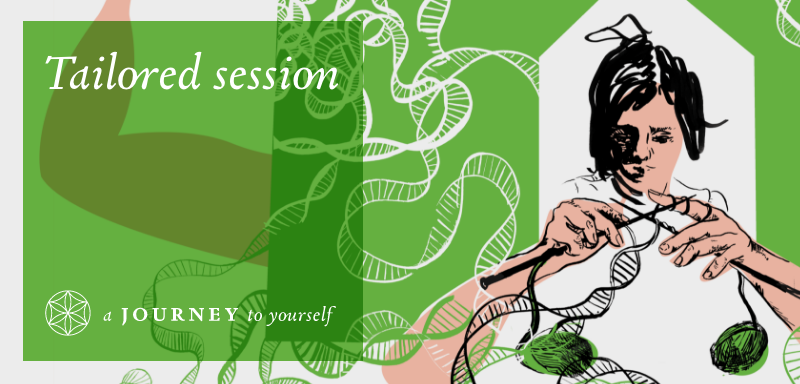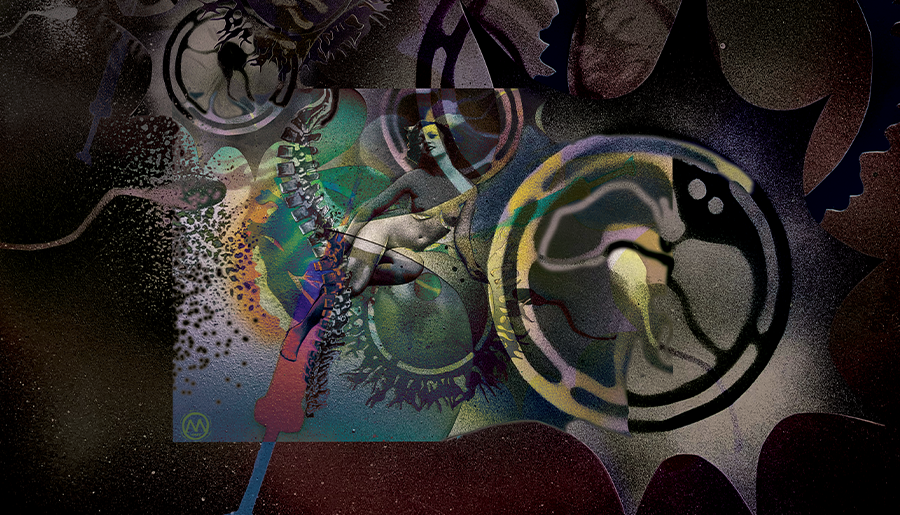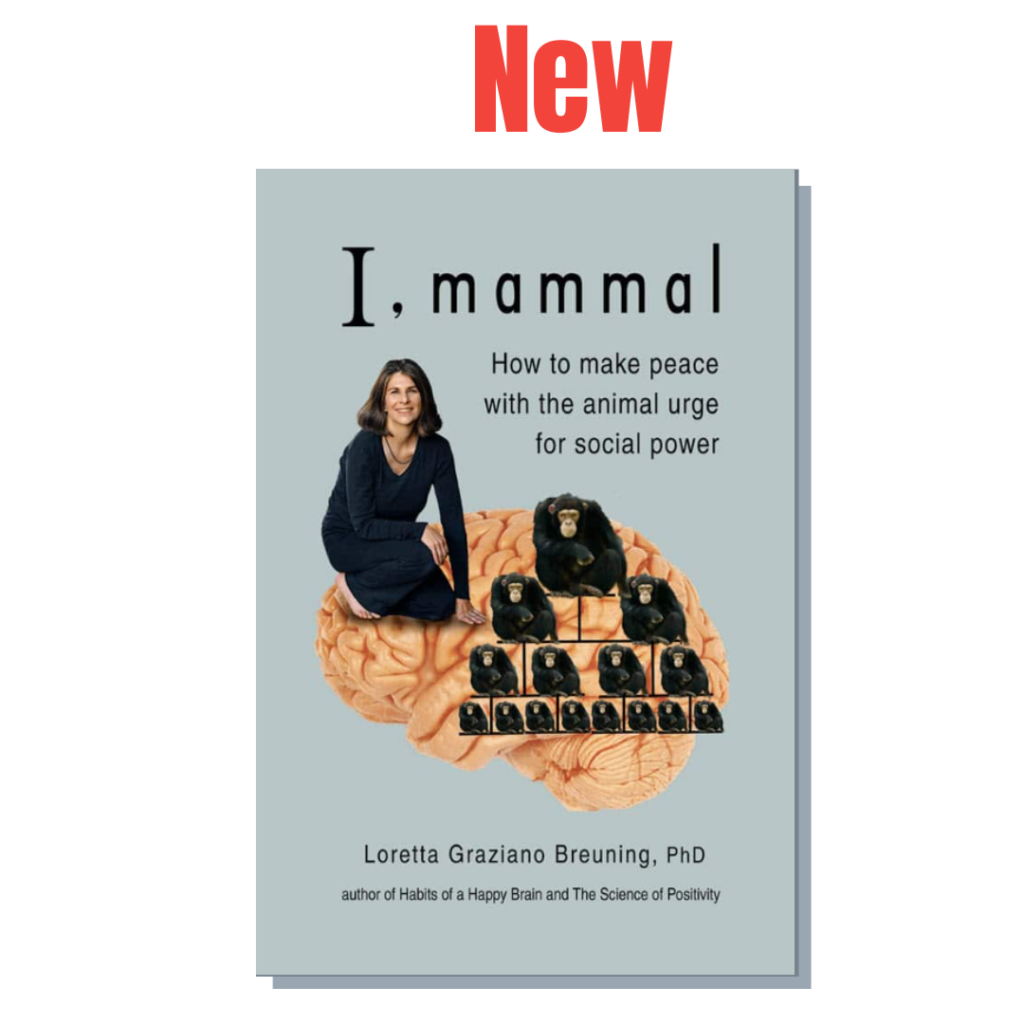What is trauma?
When an event in your life exceeds your mind’s ability to integrate all the elements of that experience, such as death, assault, rape, fire, or an accident, some of them become unaware and unprocessed. This means that you are unable to name the impressions of such a life experience, cannot find the right words, and have memory problems associated with it. This type of experience is called trauma. When a traumatic event occurs, thoughts become distracted and disorganized. As a result, you are unable to connect your memories with what happened. Such an experience, of course, is automatically transferred to your subconscious.
In this article you will learn:
- What PTSD stress and genes have in common.
- What trauma is and you will learn what an inherited trauma is.
- Methods of dealing with inherited trauma.
Despite the passage of time, the mere memory of this situation will be experienced as intensely as if it had happened in the present moment. The group of symptoms associated with this is called post-traumatic stress disorder (PSD). Your mind defends itself against this kind of memory by avoiding any stimuli that resemble this traumatic experience, e.g. places, people, or emotions associated with it. It causes you to feel indifferent, apathetic, and reluctant to act. At the same time, you are tense and have trouble controlling your emotions. You also often have problems forming close relationships with others, and you also have persistent negative beliefs about yourself. The energy patterns stored in your heart resulting from these types of experiences trigger extreme reactions in your body, mainly anxiety, fear, rage, physical pain, pressure or even hallucinations, memory problems, and nightmares. Sometimes the pain can be so bad that you only get relief from self-harm or life-threatening behavior (extreme sports, binge drinking, and drug addiction, etc.).
Traumas related to various types of tragedies and with different levels of intensity or character, e.g. war, suicide, death of a child or a parent, may even be passed on from generation to generation. They are transmitted either biologically through your genes and your DNA, or energetically through the Akashic Records. The life energy or morphogenetic field surrounds your DNA and carries information about everything that has happened in the universe between generations.
How do genes accumulate and transmit trauma between generations?
This is because you share your cellular environment with your mother and grandmother from your earliest biological ovum. When your grandmother was pregnant with your mom, the egg blastic cell that you came from was already present in your mom’s ovaries. Likewise, your dad’s sperm blast cells were also present in his fetal life. Both the egg and sperm blast cells can be marked by events that will affect your life. As your germ cells continue to develop throughout your parents’ adolescence, you are at risk of being traumatized right from conception.
As you think your thoughts and feel your emotions, your body reacts with a series of complex biochemical changes in your organs. Each experience triggers genetic changes in the cells of your body.
Genes are molecular matrices used to build cells, tissues, and organs. We are convinced that they want our lives and we are victims of heredity. We wonder what set we had at conception and wait when cancer or other diseases that previously appeared in our family crawls out of them. Meanwhile, genes do influence our traits, but they do not determine them. Genes are not your destiny. Research conducted in recent years has proven that DNA patterns inherited in genes at conception are not permanently fixed. They are modified under the influence of external or internal factors, such as the type of food, stress, thoughts or emotions, as well as the state of ecology or the network of social connections. Their goal is to optimally adapt the functioning of our body to new conditions. Despite this, the basic genetic pattern remains intact. These modifications can be passed on to the next generations.
Each of us is born with genes that enable us to enjoy a healthy life.
However, most of the diseases we fear so much are not the result of a single genetic error, but complex interactions between genes and environmental factors. It is not genes that rule biology, but the brain. Your body simply responds to your brain’s commands, either adaptively (supporting your functioning) or maladaptive (that is, in a way that harms you and weakens your immune system instead of strengthening it). Which means the body doesn’t judge your emotions or thoughts. The body doesn’t know which are positive and which are not, he just reacts to them.
DNA is the backbone of the chromosome and is covered with proteins. When a gene is obscured by them, the information written in them cannot be read. To reveal it, a signal from the environment is needed, which will induce the protein shell to change shape, i.e. to detach from the DNA double helix. Then the gene can be read. Signals cross the membrane of each cell and reach the nucleus of the cell. There they enter the chromosome and activate a specific strand of DNA to produce a specific result.
Since each of us is born perfectly genetically equipped to win against any disease, why should we control proteins and change our DNA by consciously injecting ourselves with substances that change their work? Why undergo medical experiments at the risk of triggering other diseases, protecting against another? Why, instead of artificial, untested substances, we cannot use other signals to control our genes, such as thought? Is there any other logic to this, besides fueling the economic profits of the big pharmaceutical companies? What is the guarantee that this substance will work as it should without causing other side effects. Logically, however, you have more control over your own thought than over something you create in a laboratory.
Besides being a matter-based being, you are also an energetic being.
Apart from biological processes taking place in your body, there are also energetic ones. Life energy flows into your body surrounding and rising to neurons and genes, constantly interacting with them. Genes are how organisms store information, and energy is how this information is passed on. DNA is your system’s hard drive, and energy is its power cord. Genes can be activated and deactivated by the environment inside and outside the body. One such factor is your experience, but also the meaning you give it mentally, emotionally, and also spiritually. So, genes depend on our consciousness. Although you have a fixed set of genes, which genes are active depends on your subjective experiences and how they are processed.
Genes in our brain’s neurons can also be activated by inputs from our emotional centers.
When there are emotional changes in the mental realm, biochemical changes occur in the body. Scientists have published a considerable body of research in recent years showing the relationship between emotional states such as PTS, panic, and depression, and genes. They presented evidence that the patterns of gene expression in unhappy people are different than in happy people. It turns out that emotions are epigenetic and can trigger gene methylation in parts of the brain responsible for stress responses. Such emotionally modified genes can be inherited.
Stress has a huge impact on your DNA. And your body cannot distinguish between injection of chemicals caused by either objective or subjective threats. It cannot distinguish which threat is physical and which is abstract, or which is just a mental idea. They both cause chemical reactions, and both modify your genes.
Cell biologist Bruce Lipton proved in his research that our DNA is influenced by both negative and positive thoughts, beliefs, and emotions. He proved that environmental signals that penetrate the cell membrane have the ability to control its behavior and physiology. He also believes that a mother’s emotions can biochemically alter the expression of her offspring’s genes. This is due to hormones, i.e. chemicals that pass from the mother’s blood with nutrients to the fetus, causing physiological, metabolic, and behavioral changes in the fetus. Constant or recurring emotions affect the baby and can program him in a certain way. When a mother experiences severe or constant stress, her stress hormone, for example, can program the baby’s fight-and-flight response. In other words, the more unhappy your family is, the more likely you are to be unhappy yourself, and gene modifications prove it.
Cell memory is dealt with in a newly established branch of science called epigenetics.
It studies the hereditary changes in the functioning of genes. Gene changes are designed to prepare us biologically to cope with the traumas our parents experienced. Thus, past traumas may recur in symptoms experienced by successive generations. Pain does not always go away, or it does less with time. Even if the traumatized person no longer lives, their descendants may still have memories and feelings that call for overwork and release.
So, emotions and traumas can be inherited either in utero through inherited genes from modifications of your ancestors, or through the nature of your relationship with your mother. Your mother’s experiences, emotions, and stress alter your genes. Or on a subconscious level. This happens through the vital energy, the Akashic Records, which records all the events of the universe. In this way, you can inherit the traumas of the entire nation or society in which you live related to war, hunger, or other traumatic experiences of humanity.
How can you try to become aware of your inherited traumas?
Systemic Constellations
Bert Hellinger, a well-known German psychotherapist, dealt with inherited traumas. He created a method of group therapy called Systemic Constellations or Family Constellations, which is based on obtaining information recorded in the life energy (morphogenetic field or Akashic Records), which stores all, even unconscious information about a family or group to which the patient belongs to. It allows you to recognize whether you are in the field of old, generational trauma and to heal old patterns. It is based on storytelling in which the patient tries to outline his problem in a few sentences. From the group of participants, he selects representatives of living and deceased people from his family or a group of friends. Then it “places” them in relation to each other. The representatives begin to act as if they are actual family members. The facilitator asks questions to the representatives who answer them. Thanks to this, hidden aspects of the situation that the therapist and the patient are trying to figure out come out. So, by taking part in Helinger’s setup, you can learn about your family’s traumas.
Language
Past traumas also often show up in the emotionally charged words and sentences you utter. Language is a very good tool to help identify past traumas. It draws information from the subconscious mind, which stores not only our own experiences but also the experiences of our ancestors. What to recognize them? These are usually intense and sudden words that you use to describe your deepest fears. It’s kind of your inner language. So, the words you use to describe your problems say more than you think. However, you rarely look at them closely. Oftentimes, these are words that do not match your life or experience.
Intuitive therapy
Another way is intuitive therapy based on energy healing. It consists of reading your life energy and its records with the help of psychic senses, mainly intuition and clairvoyance. Thus, your personal history, family, and historical traumas (concerning the whole society), as well as traumas of the soul. Your soul also has traumas that it acquired in previous incarnations. Such therapy deals with energetic healing of these traumas by working with your mind at theta brainwave level. Thanks to this, you can energetically change the information stored in the cells of your body to support you. If you want to try this method, check the “Services” tab on the blog, or click on the picture below and book a suitable date.

Unworked traumas from family history are passed on to the next generations.
They blend in with your personal emotions, reactions, or choices. They seem completely natural to you, so you assume that all experiences begin with you. Without seeing their true source, you cannot distinguish what is yours from what is not yours. You are convinced that you are separate from others and also from those before you. Meanwhile, you are connected to your family history and untreated traumas are part of your heritage.
Avoiding pain is part of human nature. Blocking the energy associated with it blocks wound healing and relief. Sometimes such pain remains dormant until it manifests itself in the next generation and becomes difficult to explain symptoms. People with family trauma usually go to a psychotherapist or psychiatrist, experience temporary relief, but usually, it does not completely cure the problem. Severe events in the family, such as the death of a child, loss of property, or the mother’s lack of attention, can stop the flow of love in the family.
About a million of your cells die every minute. The same number of new cells are born every minute. You may have implanted poor epigenetic signals into your old cells through destructive habits and emotions. But your old cells are on the way all the time. If you start sending new epigenetic signals to cells that are still being born, filling your heart with love and your mind with positive thoughts, your new cells may be healthier than the ones they are replacing. Every molecule in your brain is replaced every two months. Every single cell in your body is replaced every seven years. So, when you undergo psychological metamorphosis, you are also undergoing epigenetic metamorphosis.
Source:
Mark Wolynn „Nie zaczęło się od ciebie”, Czarna Owca, 2020, Warszawa.
Dawson Church „The Genie in Your Genes”, Cumberland House Publishing, 2009
Bruce Lipton “Biologia przekonań. Uwolnić moc świadomości, materii i cudów”, Wydawnictwo Esse, 2019.
PTSD stress and genes. PTSD stress and genes.


